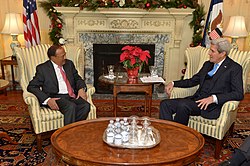
Ajit Doval: India’s National Security Architect and His Key Contributions
Introduction
Ajit Doval has been serving as India’s National Security Advisor (NSA) since May 30, 2014, under Prime Minister Narendra Modi. A retired Indian Police Service (IPS) officer from the 1968 batch (Kerala cadre), Doval is known for his deep expertise in intelligence, counter-terrorism, and strategic security affairs. Prior to his appointment as NSA, he served as the Director of the Intelligence Bureau (IB) and played a critical role in numerous covert operations. His leadership has significantly shaped India’s national security landscape.
Key Contributions as NSA
1. National Security & Counter-Terrorism
Ajit Doval is widely regarded as the architect of India’s counter-terrorism doctrine. He has been involved in multiple covert operations that have strengthened India’s security framework. His major contributions include:
- Surgical Strikes (2016): In response to the Uri attack, Doval played a key role in executing the cross-border surgical strikes in Pakistan-occupied Kashmir (PoK), sending a strong message against terrorism.
- Balakot Airstrikes (2019): Following the Pulwama attack, he was instrumental in planning the Balakot airstrikes that targeted terror camps in Pakistan, reinforcing India’s offensive defense strategy.
These actions demonstrated India’s zero-tolerance policy towards terrorism, significantly enhancing India’s counter-terrorism capabilities on the global stage.
2. Handling of Jammu & Kashmir (2019)
One of the most significant geopolitical moves under Doval’s tenure was the revocation of Article 370, which removed the special status of Jammu and Kashmir (J&K). His contributions in this regard include:
- Strategic Oversight: He played a crucial role in planning and implementing security measures to prevent large-scale unrest post-Article 370 abrogation.
- Ensuring Stability: His deep intelligence network and security strategies ensured that the region remained under tight control, minimizing the risk of external and internal threats.
- Security Cover: Under his leadership, additional paramilitary forces were deployed, and proactive counter-insurgency measures were implemented.
3. Diplomatic & Strategic Role
Ajit Doval’s influence extends beyond internal security, as he has been pivotal in shaping India’s global diplomatic and strategic stance. His key contributions in this arena include:
- Strengthening India’s Global Ties: Doval has enhanced India’s defense and security collaborations with major global powers, including the U.S., Russia, and key allies in Europe and Asia.
- Handling the India-China Border Crisis: During the Galwan Valley clash in 2020, he played a significant role in de-escalation talks with China, ensuring diplomatic negotiations while maintaining India’s strong defensive posture.
- Key Role in Indo-Pacific & QUAD Engagements: Doval has been a strategic figure in India’s Indo-Pacific policy and QUAD (Quadrilateral Security Dialogue) discussions, focusing on countering Chinese expansionism and strengthening regional security.
4. Internal Security & Policy
Doval has played a pivotal role in strengthening India’s internal security by addressing key threats such as cyber warfare, Maoist insurgency, and hybrid threats. His major contributions include:
- Cybersecurity Framework: Recognizing the increasing importance of digital warfare, he has advocated for robust cybersecurity policies to protect India’s critical infrastructure and sensitive data.
- Countering Hybrid Warfare: His strategies emphasize neutralizing threats from cyber-attacks, misinformation campaigns, and internal insurgencies.
- Handling Maoist Insurgency: His tactical approach to countering left-wing extremism has led to the decline of Maoist activities in several regions.
Background & Intelligence Career
Ajit Doval’s illustrious intelligence career sets him apart as one of India’s most formidable security strategists. Some of his notable missions include:
- Undercover Operations in Pakistan: He spent seven years undercover in Pakistan, gathering critical intelligence that proved invaluable for India’s national security.
- Kandahar IC-814 Hijack (1999): Doval played a key role in negotiating the release of hostages during the hijacking of Indian Airlines Flight IC-814 in Kandahar.
- Mizoram Insurgency Resolution: His expertise in counterinsurgency helped in successfully managing and resolving insurgency movements in Mizoram.
- Khalistani Terrorism Suppression: During the 1980s, Doval was instrumental in countering Khalistani terrorism in Punjab, significantly weakening extremist groups.
Legacy & Influence
Ajit Doval is one of India’s most influential National Security Advisors, known for his proactive and aggressive security policies. His security philosophy, often termed the “Doval Doctrine”, focuses on offensive defense and covert capabilities. His strategic insights have transformed India’s security landscape, making the country more resilient against both external and internal threats.
His tenure as NSA continues to reinforce India’s position as a global security power, ensuring national safety while strengthening its diplomatic and military influence worldwide.